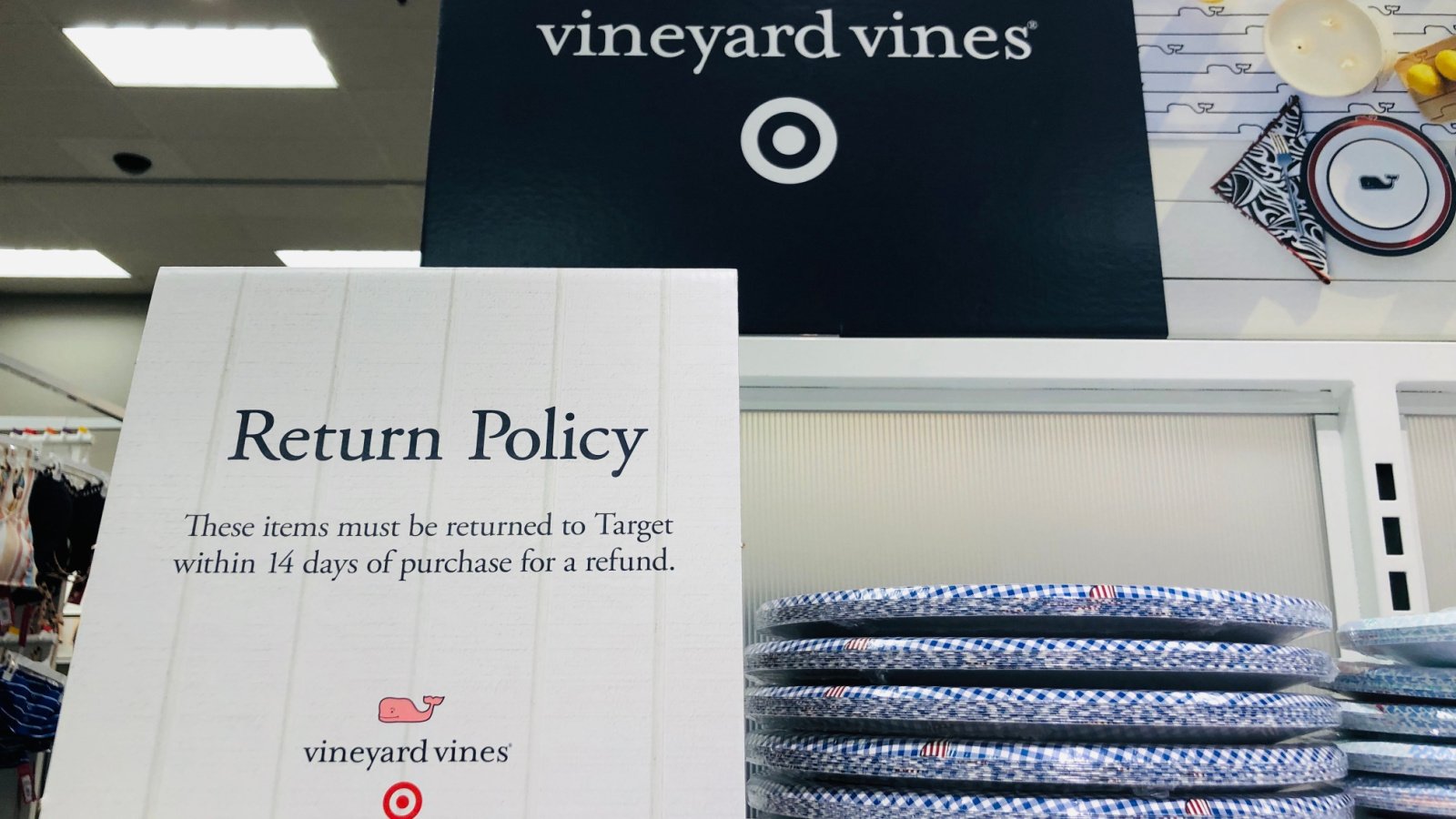How Many of These 25 Cost-Saving Habits Are Routine for You

Let’s face it: The temptation to spend money on things we don’t have is everywhere. The advertising industry spends billions of dollars daily to convince us to pay for whatever shiny object they’re selling that day. It takes discipline and time to develop the practice of not falling for these enticing advertisements.
Many think they’re pretty savvy with money and might even go so far as to call themselves frugal. But what exactly does being frugal mean? One meaning might be to develop cost-saving habits that help you save money and reduce spending on things you don’t need.
We’ve compiled a list of 25 habits and routines you can incorporate to save money and reduce your monthly expenses.
In addition to tips for reducing your daily spending on little things that add up over time, we have suggestions for reducing major unavoidable expenses like food, clothing, housing, and transportation.
Start a Budget

Starting a budget is one of the best things you can do for your finances. A budget challenges you to examine your spending. You’ll prioritize your expenses, spending your money on what’s essential and reducing or eliminating spending on unimportant things.
You can still leave room for fun and the occasional treat. You can also save a percentage of your funds for large purchases.
Automate Your Savings

You understand the importance of saving money. While you’re building your budget, include a category for your savings. But don’t just save whatever you think you’ll have left at the end of the month. Make your savings a priority by paying yourself first and automating it.
When you automate your savings, forgetfulness, emotion, and willpower don’t play a role. Your savings are more likely to grow when you remove all that.
Avoid Debt

Not living within your means and not being financially prepared for emergencies are two reasons people get in trouble with credit cards. If spending more than you have is an issue, set a budget and stick to it. Cut up your credit cards and pay for everything in cash.
Prepare for the unexpected by starting an emergency fund. Set aside at least $1,000 to help you avoid financial problems on top of any surprise expenses. Having 3 to 6 months’ living expenses tucked away is ideal, but you can work up to that.
Stop Impulse Spending

Stores are designed to separate you from your money. The layout, sounds, smells, and product displays are all calculated attempts at getting your money. That’s why they put everything you don’t need, like candy and gum, right by the checkout.
If buying things impulsively is problematic, try the 30-day rule. The 30-day rule works like this:
- The next time you catch yourself about to make an impulse purchase, put it down.
- Put the money you would’ve spent on it in your savings account.
- Wait 30 days.
- Buy it if you still want it when the 30 days are up.
Do a No-Spend Challenge

Doing a 30-day no-spend challenge is a fantastic way to save money quickly. You’ll also learn a lot about your spending habits and how much you spend on things you could stop buying without affecting your quality of life. During a no-spend challenge, you cut out all discretionary spending. You pay your bills, you buy groceries and other essentials, but that’s it.
If a month with no unnecessary spending sounds too radical, start smaller. Do a no-spend week to get your feet wet, or begin with a no-spend weekend. You could also try one of these fun money-saving challenges to gamify saving money.
Check the Fridge and the Cabinets

Most of the time, our pantry looks like we’re ready for the zombie apocalypse. But we’re not preppers by any stretch. When there’s a good deal, we load up. We also shop in warehouse stores for particular items. We can have several days’ worth of meals without going food shopping.
So before you go to the store, see what you have for leftovers. Check your cabinets. Use the ingredients you have on hand with the sale items to plan your meals for the week. You’ll cut your food bill significantly if you can use what you already have. You might even cut out one trip to the grocery store every month.
Plan Your Meals for the Week

You can plan your meals once you know what’s on sale and what you already have in the cabinets. Meal planning helps you cut unnecessary spending on fast food and takeout. If you know what you have every day and it’s already made, there’s no reason to order lunch or pick up dinner on the way home.
Use Coupons

Setting a food budget and sticking to it is challenging. Hunger, temptation, and cravings wreck even the best plans. That’s why saving money on food any way you can is a must. Using coupons will save you a few dollars every time you shop. With the number of trips we all make to the grocery store, that adds up.
Sign up for Loyalty Programs

Many stores offer loyalty programs with exclusive discounts and coupons for cardholders only. These programs open the door to personalized deals and exclusive coupons.
Some people feel that tracking their purchases is an invasion of privacy. I get that. You don’t have to sign up if sharing your data makes you uncomfortable.
Get Cash Back on Your Grocery Purchases

Download the Ibotta app to your phone to get cash back on groceries. With Ibotta, you browse offers from stores in your area and add the ones you’ll use to your list. After you’re done shopping, scan your receipt via the app. Some stores allow you to connect your loyalty card to Ibotta, so you don’t have to scan your receipts.
You’ll get money back for your purchases credited to your account, usually within 24 hours. When you hit $20, you can cash out via PayPal.
Keep a Grocery Price Book

Some discounts aren’t all they’re cracked up to be. Sometimes, stores jack up the regular price so high that 25 percent off or buy one get one half off seems unbelievable. The truth might be other stores sell the same items even cheaper. How do you know whether that sale price is a good deal?
If you keep a price book, after a while, you’ll know immediately if the advertised price is a good deal or if you can do better. You’ll also notice trends and sales cycles. You’ll be able to predict when certain items will go on sale, and you’ll be able to recognize a real deal when you see one.
Prep Meals in Bulk

If you can spend a Saturday or Sunday afternoon cooking in bulk for the upcoming week, you’ll reduce the temptation to go out to eat or have something delivered. After a long day, you might not feel like cooking. But if you can heat something and have dinner on the table in 15 minutes, there’s no reason not to.
Sell Stuff You No Longer Need

Most of us have bought things we did not use much. Kitchen appliances, tools, sporting goods, toys, and many others collect dust. Sometimes, we outgrow things. Occasionally, things that seemed like a good idea at the time proved otherwise.
Whatever the case, there’s a healthy market for used goods. You can have a yard sale. If you have clothes you no longer wear, you can make money selling used fashions on Poshmark. You can use an app to sell furniture you’re not using and sell other unwanted items via eBay, Craigslist, or Facebook Marketplace.
Repair Instead of Replace

Some people automatically throw out and replace anything that breaks rather than having it repaired. That’s an expensive approach. And it’s not always necessary. It would be best to investigate repair costs before throwing an item out.
Many products come with warranties that cover common repairs. Some repairs are simple enough to do on your own with the help of YouTube or a little research. Sometimes, the cost of a repair pales compared to the cost of a comparable replacement. Other times, the repair cost is more than the item is worth.
Return Stuff You Don’t Need

Ever felt buyer’s remorse? I feel regretful and a little stupid about a few of my past purchases when I go home. So back to the store it went.
Most stores will refund your money if you have a receipt in less than 90 days. You can return almost anything, including groceries. Some stores have longer return periods or will let you return an item without a receipt.
Shop for Better Car Insurance Rates

Insurance is one of those things that are better to have and not need than need and not have. It’s just that insurance can be costly. Shop around. Insurance is a competitive business. The best way to get a better rate is to contact multiple providers.
Also, find any discounts you’re eligible for. Discounts are available for good drivers, students, veterans, and members of specific organizations or professions, such as teachers. You can usually get a discount if you bundle coverage like auto and home.
Drive Less

You might not need a car if you live in a major city with a robust public transportation system. For the rest of us, there’s walking, riding a bike, carpooling, and taking public transportation when possible. Driving your car less leads to less wear and tear, spending less on gas, and lower maintenance costs.
Lower Your Utility Bills

You can’t avoid paying for utilities, so looking for ways to reduce the bills makes sense. Here are some quick tips:
- Fix leaky faucets
- Stick to warm or cold, and don’t wash clothes in hot water
- Replace existing showerheads with more efficient, WaterSense-labeled models
- Use a programmable thermostat to change the temperature while you’re at work
- Take quicker showers
- Install dimmer switches
- When buying appliances, go with energy-efficient models
Get a Library Card

A library card unlocks a wealth of entertainment options and resources. There’s no catch, and it’s free. Libraries offer all sorts of reading materials, but there’s more to them than just books.
Public libraries have DVDs, Blu-rays, CDs, magazines, audiobooks, and even video games available. Many offer free access to audiobooks, ebooks, and other downloadable content. Wi-Fi, printers, scanners, and copiers are also typically available if needed.
Enjoy Free and Cheap Entertainment

The cost of taking your family to a movie or a ball game has gotten out of hand. Fortunately, there are plenty of free and low-cost alternatives.
Check local websites and newspapers for free and low-cost activities. You can spend an entire day at libraries, museums, zoos, or aquariums without spending much money. Get outside, walk, ride a bike, or practice your free throws. Or stay home for movie marathons, board games, card games, or arts and crafts.
Enjoy Nice Weather

There’s a world of free and low-cost fun right outside your door. You don’t have to spend a fortune to enjoy time with your family and also get the benefits of fresh air and exercise.
- Go for a walk
- Ride bikes
- Take up hiking
- Visit parks, beaches, or lakes in your area
- Pitch a tent in your backyard
Have Fun Outdoors

There are great ways to spend time outside all year long. When there’s snow on the ground, dress warmly and head out to:
- Build a snowman or a snow fort
- Go sledding
- Make snow angels
- Ice skate
- Go snowshoeing
Enjoy Date Nights at Home

Date night doesn’t have to be dinner at a fancy restaurant and a show afterward. Dinner at your house can be just as romantic. A nice outfit, your favorite meal, candlelight, and soft music in the background all work just as well at home. Be creative.
Exercise at Home

Are you getting max value or any value out of your gym membership? If not, consider canceling. Exercise at home instead. You don’t need state-of-the-art equipment or a sweaty instructor yelling at you for a good workout.
You can free walk, run, or do bodyweight exercises at home. Barely used exercise equipment frequently appears on Craigslist and Facebook Marketplace at very low prices.
Do a Wardrobe Inventory

My closet was once bursting with things I never wore and things that no longer fit. I was running out of closet space, yet I was still buying new clothes. I finally did a closet inventory. I took everything out, made little piles all over the bedroom, and started trying things on in front of the mirror.
Once I got organized, I donated some things, made money selling clothes on Poshmark, and started wearing what I already had. I hardly spent anything on clothes last year. Instead of going shopping, take a trip through your closet instead. You might rediscover some fabulous fashions you already have.
The 41 Biggest Wastes of Money

If you’re looking for ways to earn more money to put toward your goals, start by examining your spending habits. By tracking your spending and seeing where every dollar goes, you’ll likely find several instances of spending money you don’t have to. It could be little things that add up or recurring monthly expenses that are an utter waste of money.
Once you eliminate your bad spending habits, that money can go toward your emergency fund, paying off debt, or other essential things. Here are the 41 biggest wastes of money to look out for.
- Read More: The 41 Biggest Wastes of Money
17 Practical Frugal Living Tips to Save Money

Frugal living isn’t about denying yourself or being stingy. It’s about spending money wisely and saving money where you can. But it’s hard to go from spending recklessly to being frugal. Frugal living offers many benefits that make it worth it. Living frugally will help you live within your means, get out of debt, build up your savings, and reach financial freedom. The frugal living tips below will aid you on your way.
10 Practical Ways to Be Frugal Without Being Cheap

You can be frugal without being cheap by understanding the difference between price and value. A cheap person cares only about getting the lowest price. Frugal people look at price as one factor that determines value.




